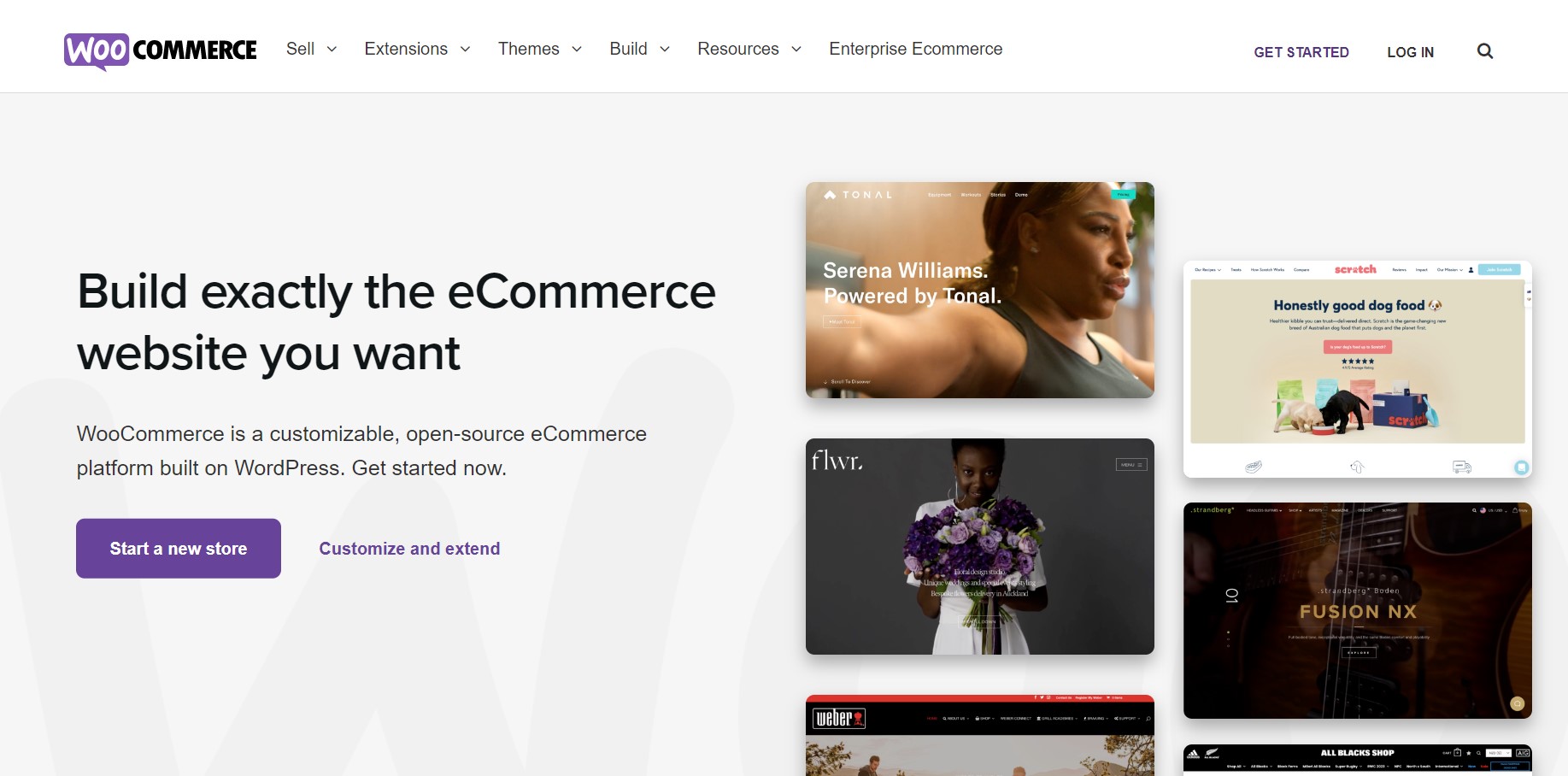If you’re new to ecommerce or looking to redesign your online store, you might be wondering which platform is right for you.
You’ve probably done your research and talked to people about popular ecommerce platforms like WooCommerce vs Shopify. Most users prefer an ecommerce platform that is rich in features, flexible, and has simple pricing. However, it’s also important to keep in mind that each platform comes with its own set of complexities. With so many ecommerce platforms on the market, it can be tough to decide which one is best for your business.
Shopify and WordPress are two of the most popular options, but what sets them apart?
After you understand which features you require for your ecommerce store, the answer will become clear. Keep in mind what is best for your particular business model when deciding.
The purpose of this article is to give you a general understanding of WordPress and Shopify so that you can make an informed decision.
WooCommerce vs Shopify: Which One Is the better choice?
Both WooCommerce and Shopify are popular ecommerce platforms, but they have different strengths. WooCommerce is a plugin for WordPress, so it is very flexible and customizable. However, this also makes it more complex to use. Shopify is a standalone platform with more features out of the box, but it is less customizable..

WooCommerce
WooCommerce is a plugin for WordPress that allows you to create an online store. It is very flexible and customizable, but this can also make it more complex to use. WooCommerce comes with a lot of features out of the box, but it is less customizable than Shopify.
WooCommerce is successful because it’s user friendly, powerful, and has an unlimited amount of customization options. The most impactful reason for its success though is that it allows you to utilize WordPress the most popular CMS in the world- to run your store.
Shopify
Shopify, in contrast to WooCommerce, is not an open source platform; however, it does offer a broad selection of features that can appeal to diverse needs. Also, Shopify isn’t free you have to pay a monthly fee as well as a commission on each sale. An advantage of the platform is how easy it makes building an online store from scratch. If you’re new to coding or have limited skills in coding, Shopify would be especially beneficial for you.
If you want to give your store a Personal touch, you might need some help from experts. With Shopify, it is easy to get the hang of things because the platform is very user-friendly in other words, it sets the standard that all other ecommerce platforms are compared against.

How to Choose the Right Ecommerce Platform?
Many potential ecommerce store owners struggle with choosing the right platform for their business because they are unsure of what to look for. It can be tempting to choose WooCommerce or Shopify simply because everyone else seems to be using them, but as a store owner, you need to have sound reasoning behind your decision making. Let me help you develop a rationale for your choice of ecommerce platform.
Evaluate the following qualities before selecting an ecommerce solution for your business:
1.Scalability and Growth
Ecommerce platforms can be a great business partner, helping you to grow your business. But many platforms are not compatible with a growing business, or they restrict your growth by taking control of crucial aspects like customization or scalability. Make sure that your ecommerce platform gives you the freedom to grow your business according to your own plan.
2.User Interface
The user interface (UI) is an integral part of every ecommerce store as it directly affects how potential customers perceive your business.
WooCommerce does not currently have its own theme store. However, fantastic themes can be found at reliable marketplaces like Theme Forest, which is associated with Envato Market. Always choose a lightweight responsive theme to ensure that visitors have a positive experience regardless of the device they use to access your store.
3.Third-Party Integration
Ecommerce is more complex than just setting up a store on a platform. You need to have tools for marketing, email, and social media that work together seamlessly. When choosing an ecommerce platform like WooCommerce, be sure to select one that integrates easily with other tools you’re using.
4.Ease Of Use
If you own an online store, chances are you want to spend the majority of your time on important tasks that pertain to your business, such as taking customer feedback, processing orders, responding to customer queries, and talking with vendors. Fortunately, WooCommerce makes it easy not only to create an online store in the first place but also keep track of everything and manage it effectively. Plus, there are plenty of options when it comes time to process payments through ecommerce platforms.
5.Hosting Options
Reliable hosting is key for any website, but especially ecommerce stores which are susceptible to traffic spikes during sales and special promotions.
If you opt for WooCommerce to host your ecommerce store, you get to choose the server specifications (server size, storage, processor, and bandwidth). However, experts suggest going for an auto-scalable hosting provider so that traffic spikes don’t take down your store.
With Shopify, you trade hosting freedom for stability. Your ecommerce store will run on Shopify servers, so you don’t have to worry about things like server space or scalability. You also get the added bonus of being able to use a domain name that you already own.
6.Apps/Plugins
The platforms we offer come complete with all the features you would expect from a top of the line ecommerce platform, such as: product creation, CSV import of catalogs, presentation of products, management of payment methods and orders delivery, customers service stocks discount codes coupons etc.
You can also increase the capabilities of your platform by choosing extensions and add-ons that fit snugly into the software. For example, WooCommerce provides a variety of extensions while Shopify has access to a wide selection of apps through its App Store.
7.SEO Optimization
Ranking your Shopify or WooCommerce products on search engine results pages (SERPs) is crucial to boosting awareness and subsequently sales.
WooCommerce is a very effective platform, so all you have to do is install Yoast SEO, which is a free plugin with some premium features. Although you have to pay for some Shopify SEO apps, such as Avada SEO or Booster SEO, it is worth it in the long run.
8.User Friendly
If you don’t have professional experience as a developer, then this is something you need to give ample thought. WooCommerce allows for both simplicity and customization, though advanced customizing will require the help of a pro. The same can be said for Shopify while its drag-and-drop interface makes it easy to set up an online store, making significant changes will take some effort on your part.
9.Shipping Methods
You can tailor your shipping costs on both WooCommerce and Shopify to fit a number of conditions: size and weight of the products, local vs. international delivery, etc. If you want even more control, you can set up a real-time calculation of shipping cost that considers different carriers like FedEx and UPS.
10.Payment Gateways
Payment options are an important part of WooCommerce and Shopify Platforms.
Shopify offers in-built Shopify Payments powered by Stripe, as well as third-party payment gateways like PayPal and Amazon Payments. However, please note that Shopify Payments is currently only available in specific countries which are the United States, Canada, the United Kingdom, and Australia.
For other countries, you need to use a third-party payment gateway (which may require a fee).
If you’re looking to use WooCommerce for your ecommerce store, there are several payment gateway extensions available. Two of the most popular – PayPal and Stripe – are free, while other solutions like Authorize .NET, Amazon Payments or Braintree will cost around $100/year.

Is WordPress or Shopify better for SEO ?
Choosing the right ecommerce platform for your business is an important decision.
There are a number of factors you need to consider, such as cost, features, and ease of use. But one of the most important considerations is SEO.
If you’re a small business or just starting out, Shopify might be the better option. It’s easier to use and you don’t need to worry about hosting or security. Plus, Shopify has built-in SEO features that will help you get found online.
On the other hand, if you’re an experienced online marketer or have a larger budget, WordPress might be the better choice. With WordPress, you have more control over your website and can add powerful SEO plugins to really optimize your site for search engines.
Ultimately, the best platform for SEO is the one that’s best for your business. Consider your needs and budget, and make the choice that’s right for you.
Q1: What should I use Shopify or WooCommerce
If you’re looking for an easy-to-use platform with built-in SEO features, Shopify might be the best choice. On the other hand, if you want more control over your website and need advanced SEO features, WooCommerce might be a better option.
Q2: Is WooCommerce better than Shopify
In general, WooCommerce is a great option for those looking for a flexible and powerful eCommerce solution, while Shopify is ideal for those who want an easy-to-use platform with plenty of features.
Q3. Which ECommerce platform is best for small businesses?
WooCommerce is a great eCommerce platform for small and medium-sized businesses. It is free, open-source, and supported by the WordPress community, so users have access to powerful features (themes/plugins/extensions) and customization options.

